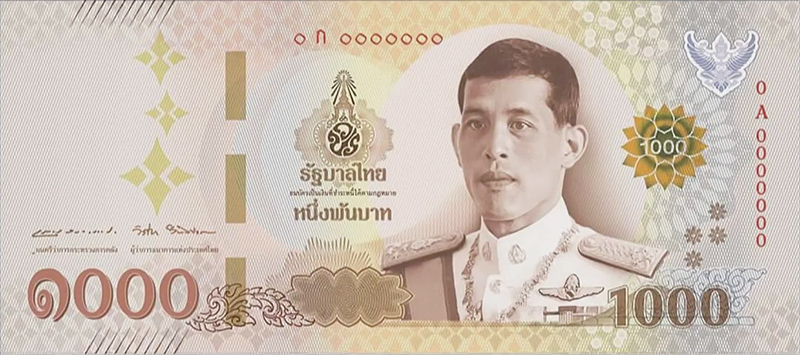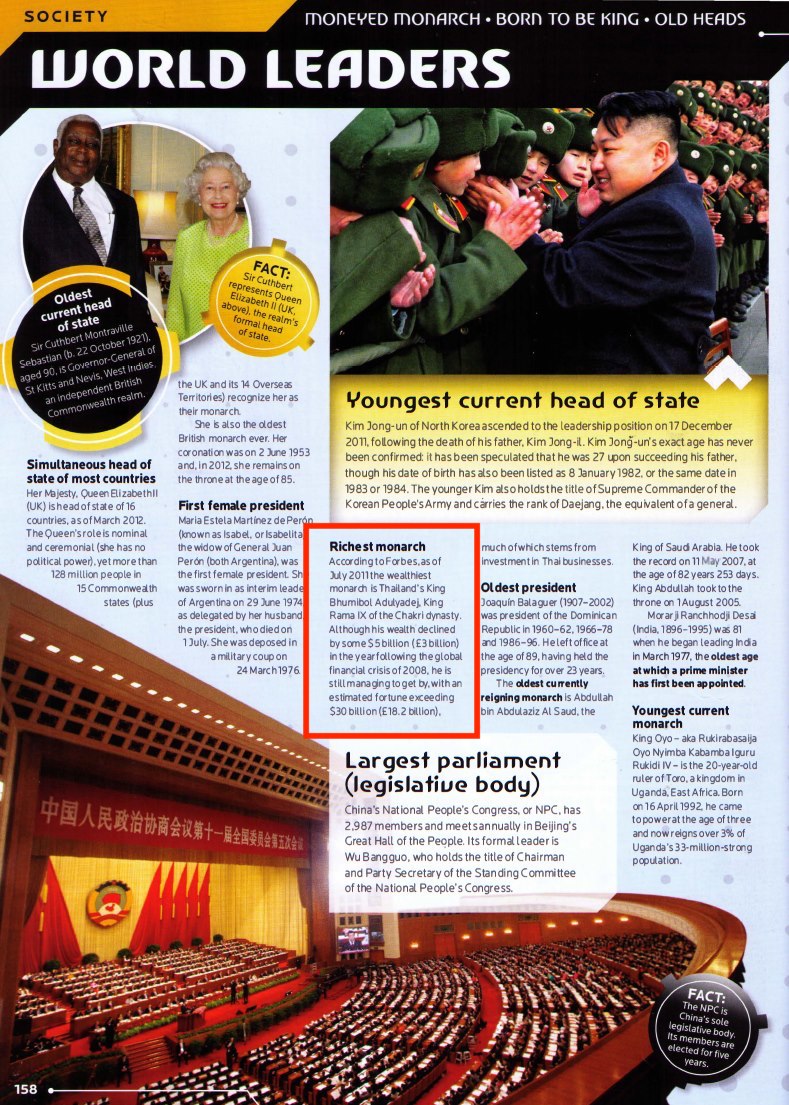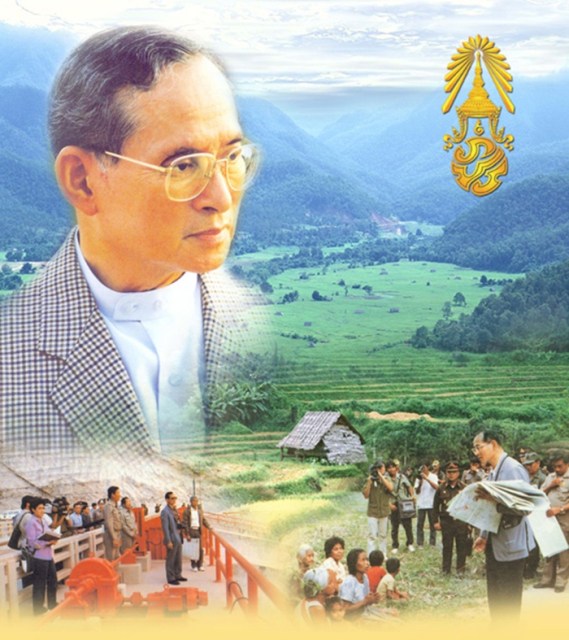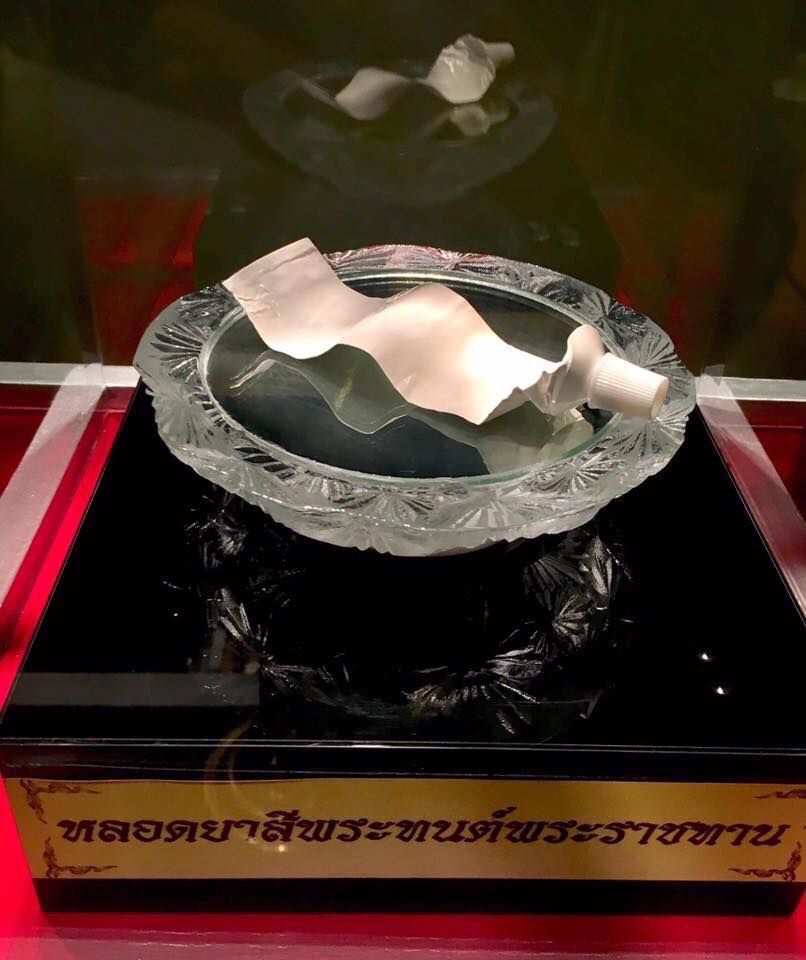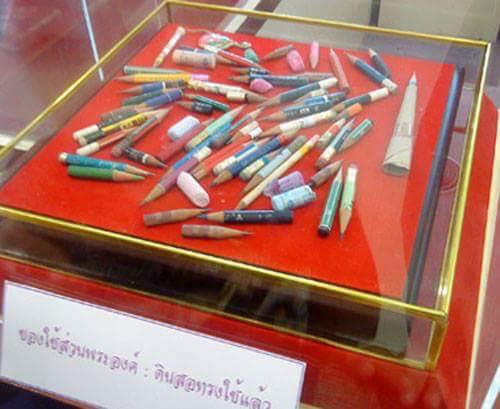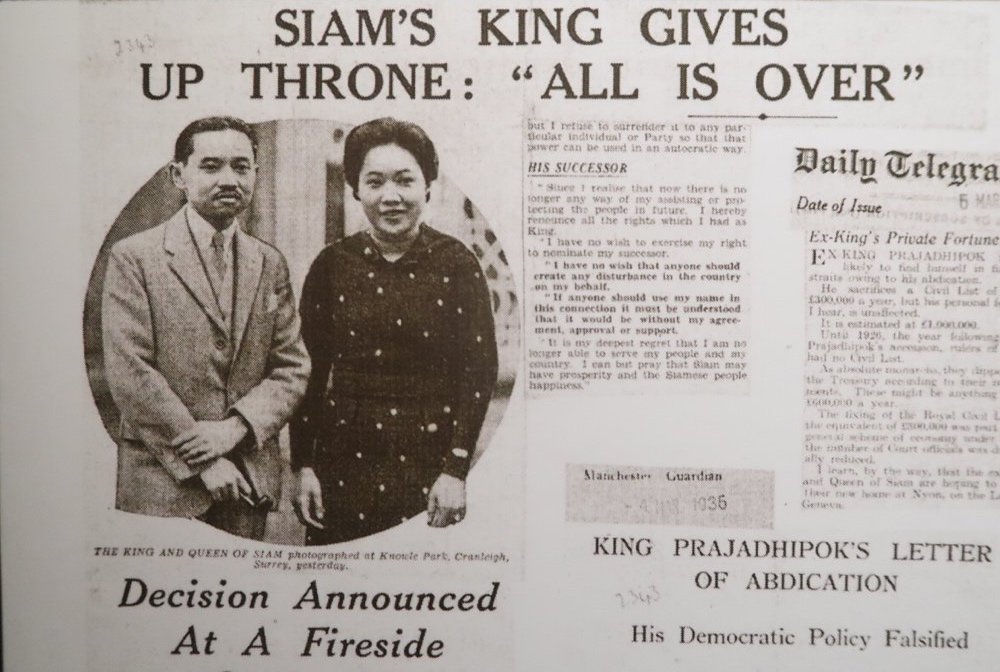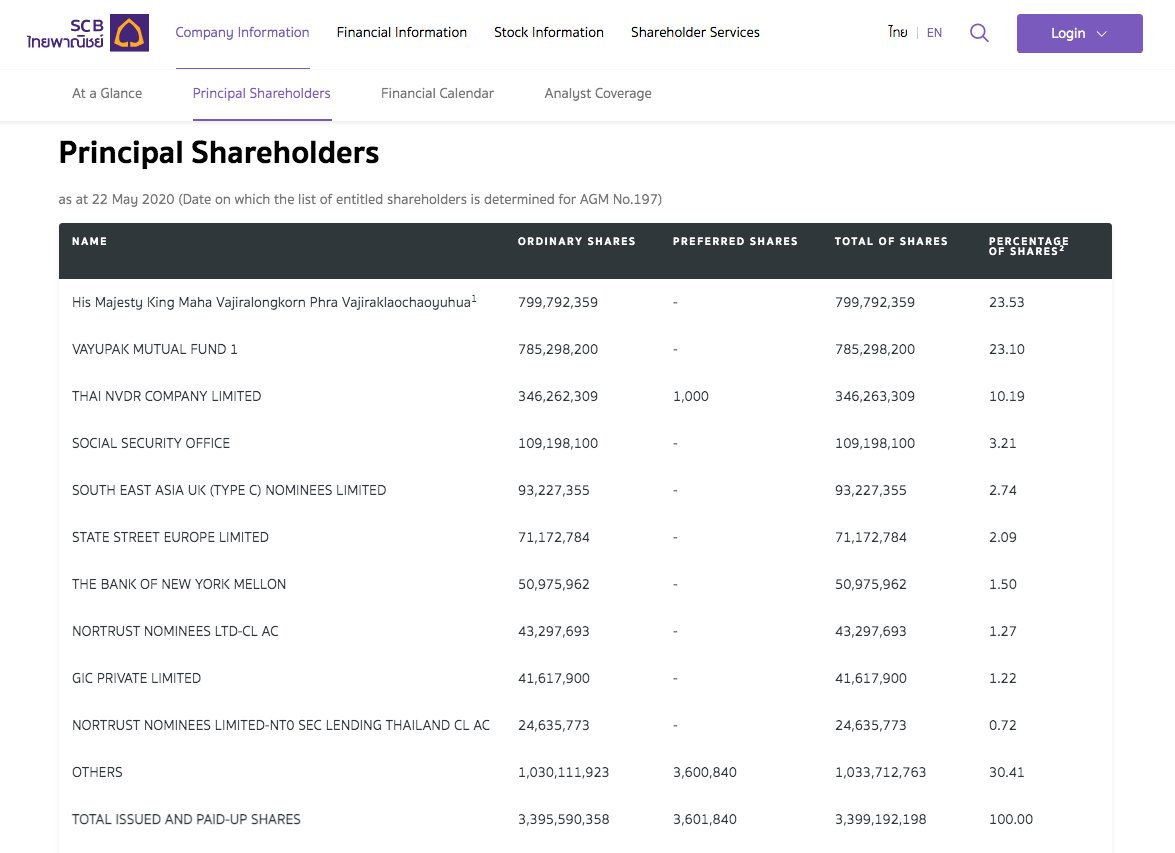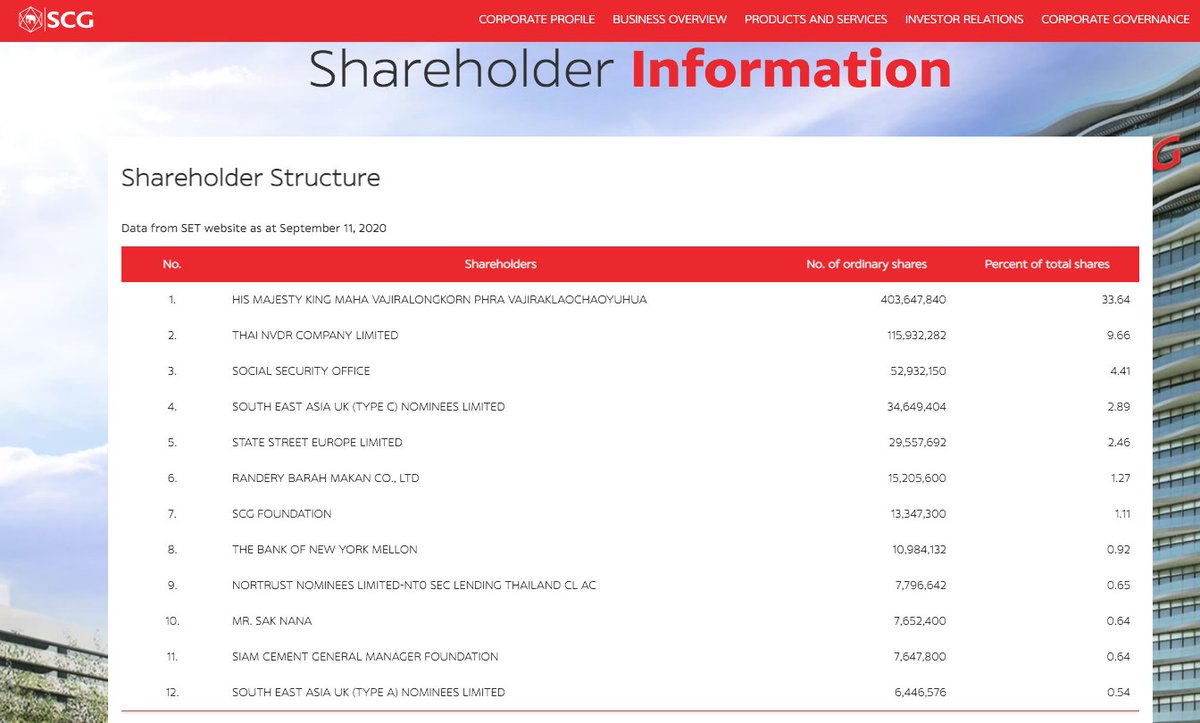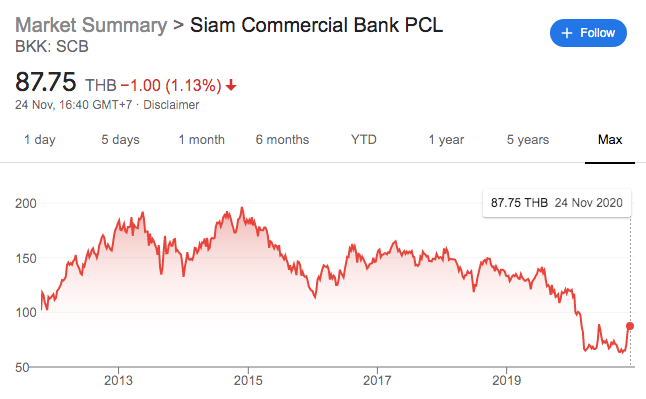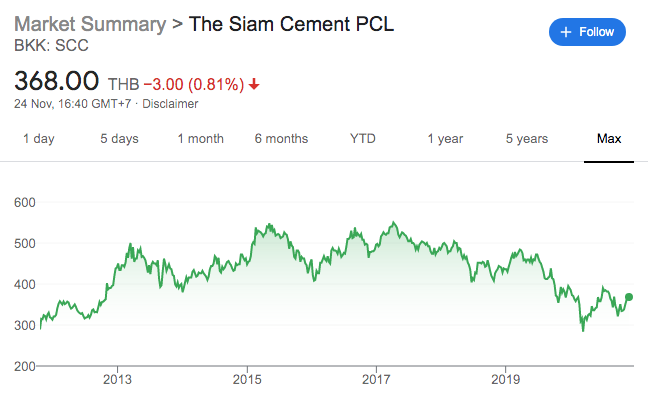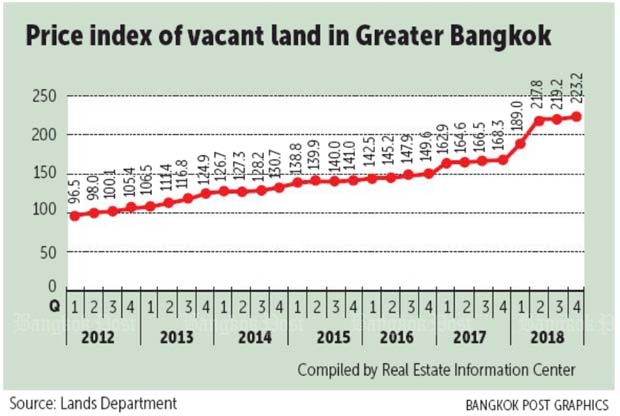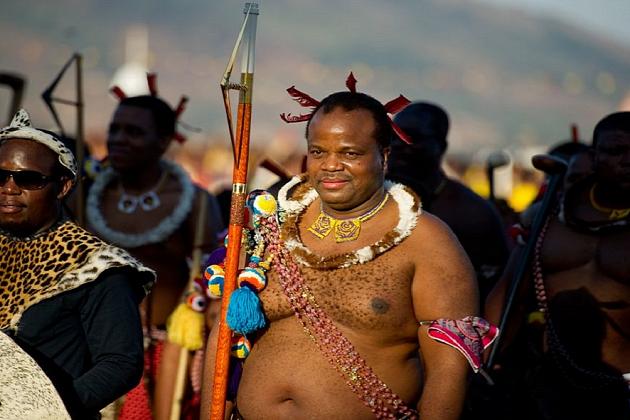How rich is Thailand& #39;s King Vajiralongkorn? With democracy activists set to rally on Wednesday in Bangkok to protest against the monarchy& #39;s misuse of public money, it& #39;s a good time to take a look. Here comes a THREAD: #ม็อบ25พฤศจิกา #25พฤศจิกาไปSCB #WhatsHappeningInThailand 1/40
For many years, international media routinely reported the Thai monarchy was worth about $30 billion. This figure is based on old estimates by @Forbes magazine, which started producing an annual list of the world& #39;s wealthiest monarchs back in 2008. https://www.forbes.com/global/2008/0901/038.html?sh=23004ee173bc">https://www.forbes.com/global/20... 2/40
Guess who was Number 1? King Bhumibol of Thailand, with an estimated fortune of $35 billion. By 2009 his estimated wealth had dropped to $30 billion due to a global economic crisis, but he was still the wealthiest monarch in the world. https://www.forbes.com/2009/06/17/monarchs-wealth-scandal-business-billionaires-richest-royals_slide.html?sh=6ced999b59f2">https://www.forbes.com/2009/06/1... 3/40
Based on the Forbes estimates, the Guinness Book of Records started naming him year after year as the richest king in the world. Here is the relevant page of the 2013 Guinness Book of Records. 4/40
This was really embarrassing for the monarchy because palace propaganda always insisted that the royal family was working tirelessly to develop the nation, and giving huge donations to people in need. If that was true, how was Bhumibol so wealthy? 5/40
Bhumibol frequently told Thais to live according to a philosophy he called "sufficiency economy", living simply and frugally rather than trying to get wealthy. According to propaganda, he lived this way too, with no interest in amassing a vast fortune. 6/40
This myth became increasingly absurd as Thais were told that Bhumibol was so thrifty that he squeezed every last drop of toothpaste out of each tube, and didn& #39;t buy new pencils until his current ones had been used right to the end. 7/40
His old toothpaste tubes and pencil nubs were venerated like holy objects. Meanwhile, he was supposedly donating every spare baht he had to help the needy and improve Thailand& #39;s prosperity. It was a huge blow to this image when he was named the richest monarch in the world 8/40
So the royal family tried to pretend they were not really wealthy at all. The palace downplayed the size of the royal fortune and claimed the Crown Property Bureau, which controlled most royal wealth, belonged to the nation and the people of Thailand, rather than the king. 9/40
CPB annual reports routinely stated: “Crown property is state property and public property, for which the government through the Minister of Finance as the Chairperson is responsible, and which the CPB takes care of.” But this was completely untrue. 10/40
It& #39;s true that after the revolution that ended absolute monarchy in 1932, Siam’s new leaders took control of the assets of the Privy Purse Bureau — the precursor of the CPB — and slashed the annual payments to the royal family. This led to the abdication of King Rama VII. 11/40
But in 1947, the military seized power in a coup in alliance with the royalist Democrat Party, and the country’s democratic leader Pridi Banomyong had to flee into exile. In 1948 the new royalist government amended the law to restore ownership of the CPB to the king. 12/40
Although royalists spent decades claiming the CPB belonged to the nation, the truth was revealed after Bhumibol died. In 2018 Vajiralongkorn declared he was transferring all CPB assets to his direct ownership. The military regime made no objection. https://www.bbc.co.uk/news/world-asia-44507590">https://www.bbc.co.uk/news/worl... 13/40
Estimating the size of the fortune Vajiralongkorn took over from the CPB is hard because there are four main elements of the CPB& #39;s wealth and while we can easily value two of them, we just have to make an informed guess about the other two. Let& #39;s start with what we know 14/40
The three core assets of the CPB, now directly owned by Vajiralongkorn, are a large stake in Siam Commercial Bank, an even larger stake in Siam Cement Group, and a vast amount of land. SCB and SCG are traded on the stock market so we know the precise value of the stakes. 15/40
Vajiralongkorn owns 23.53 percent of SCB, Thailand& #39;s oldest commercial bank. At the current share price of 87.75 baht, the stake is worth 70.98 billion baht, or $2.34 billion. https://www.scb.co.th/en/investor-relations/company-info.html">https://www.scb.co.th/en/invest... 16/40
He owns 33.64 percent of industrial conglomerate SCG, worth 149.76 billion baht or $4.94 billion at the current share price of 368.00 baht. https://scc.listedcompany.com/shareholder_structure.html">https://scc.listedcompany.com/sharehold... 17/40
So the total value of the stakes in Siam Commercial Bank and Siam Cement is currently $7.28 billion. Adding insurance firm Deves, which we can& #39;t value so easily because it is wholly owned by the king, Vajiralongkorn& #39;s equity holdings are likely to be at least $7.5 billion. 18/40
The value of these assets has fallen sharply in recent years due to Thailand& #39;s political instability and the impact of the pandemic. SCB shares are down more than 55 percent from their November 2014 peak, and SCG has dropped 30 percent since May 2015. 19/40
The biggest unknown in valuing CPB assets is what the vast landholdings are worth. The monarchy owns about 41,000 rai of land — 8,835 rai in Bangkok and 33,000 outside the capital, mostly in provincial cities (the rai is a Thai measurement, with roughly 2.5 rai to an acre) 20/40
Valuing the land is hard for several reasons. The monarchy is not transparent about exactly where all its land holdings are. The CPB undervalued its land in its own accounts, and for decades charged below-market rents to tenants. Also, land is not a very liquid asset. 21/40
Porphant Ouyyanont, the leading expert on the CPB until his death earlier this year, estimated the value of the Bangkok land holdings alone at 1.037 trillion baht in 2014. He estimated the total value of the CPB that year at $43.8 billion. https://www.iseas.edu.sg/images/pdf/Trends_2015_13.pdf">https://www.iseas.edu.sg/images/pd... 22/40
Land prices have surged since then, both in Bangkok and in provincial cities. Extrapolating growth since 2014 and adding the value of the provincial holdings, a figure of 1.5 to 2 trillion baht for land would be reasonable for current value. That& #39;s $49 to $66 billion. 23/40
The other unknown about the value of the CPB assets inherited by Vajiralongkorn is what happened to all the annual surpluses. The corporate stakes generated huge annual dividends, and the land and property generated rental income. 24/40
SCB paid a dividend of 6.25 baht a share in 2019, earning Vajiralongkorn 4.99 billion baht or $165 million. https://www.scb.co.th/en/investor-relations/stock-information.html
SCG">https://www.scb.co.th/en/invest... paid a dividend of 14 baht a share, which would have earned Vajiralongkorn 5.65 billion baht or $187 million. https://scc.listedcompany.com/financial_overview.html">https://scc.listedcompany.com/financial... 25/40
SCG">https://www.scb.co.th/en/invest... paid a dividend of 14 baht a share, which would have earned Vajiralongkorn 5.65 billion baht or $187 million. https://scc.listedcompany.com/financial_overview.html">https://scc.listedcompany.com/financial... 25/40
Estimating rental income is harder. The CPB administers around 40,000 rental contracts, including 17,000 in Bangkok. Tenants range from government offices, prime commercial sites with five star hotels and giant malls, to slum communities and 19th century shophouses. 26/40
The CPB charged very low rents for decades, but in recent years has been raising rents towards the market rate. Rental income must be hundreds of millions of dollars of years by now, at a very conservative estimate. 27/40
Porphant& #39;s research found that the CPB& #39;s annual income between 2009 and 2011 fluctuated between 9 and 11 billion baht, or $296 to $362 million. By now the annual income is likely to be between $500 million and $1 billion. What happened to all this money? 28/40
It& #39;s unlikely it was used to pay the expenses of the royal family, because Thailand& #39;s royals get the taxpayer to fund almost all their expenses. The monarchy received 29 billion baht in the latest Thai annual budget — nearly $1 billion. 29/40
With a population of around 69 million people, this means that the annual per capita cost of the Thai monarchy is 420 baht or $12.88. In contrast, Britain& #39;s monarchy has a per capita cost of just $1.23.
30/40
30/40
The only country in the world with a costlier monarchy in per capita terms is the Kingdom of eSwatini, formerly known as Swaziland. eSwatini is ruled by an absolute monarch, King Mswati III, who is notorious for oppression and human rights abuses. 31/40
So although Vajiralongkorn and the royal family spend a vast amount of money, most of it is funded by taxpayers, and this means the large annual surpluses generated by CPB wealth were probably invested, to generate even more wealth. 32/40
If we conservatively estimate an average $250 million annual income over the past 20 years, that& #39;s another $5 billion of royal wealth. Invested prudently, it would be worth at least $10 billion by now. 33/40
So adding all the elements of CPB wealth — land worth $49 to $66 billion, corporate stakes worth $7.5 billion, and a conservative estimate that they generated $10 billion from annual income in the last couple of decades, we can make a sensible estimate of Thai royal wealth 34/40
The value of the assets that Thais had been told belonged to the nation, until King Vajiralongkorn took them for himself in 2018, is probably $66 to $84 billion. That is a staggering amount of wealth for one man to own. 35/40

 Read on Twitter
Read on Twitter